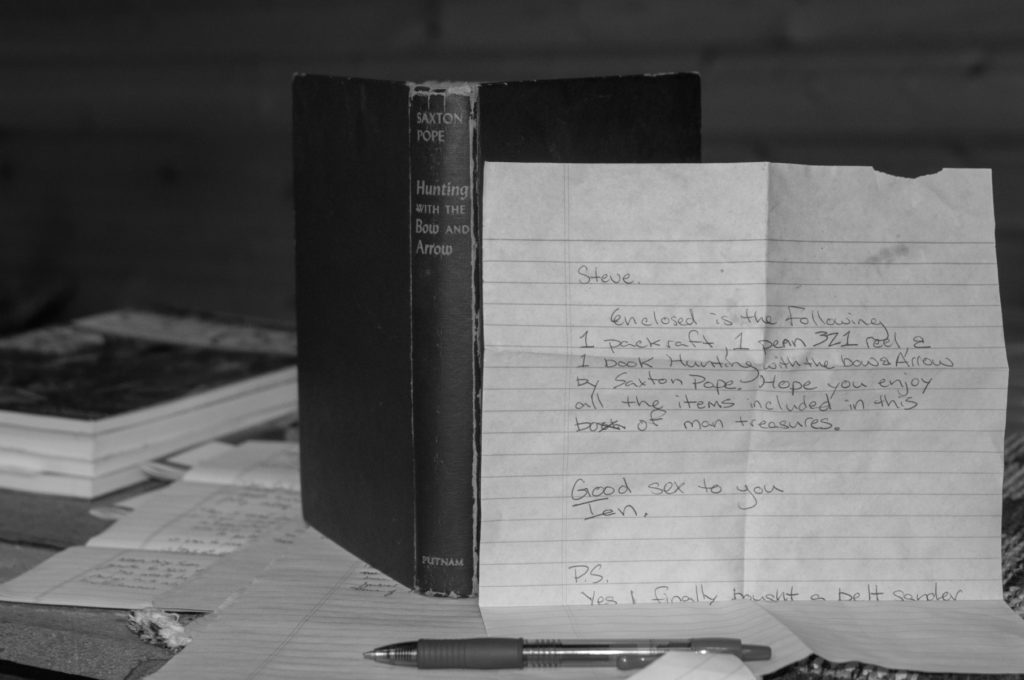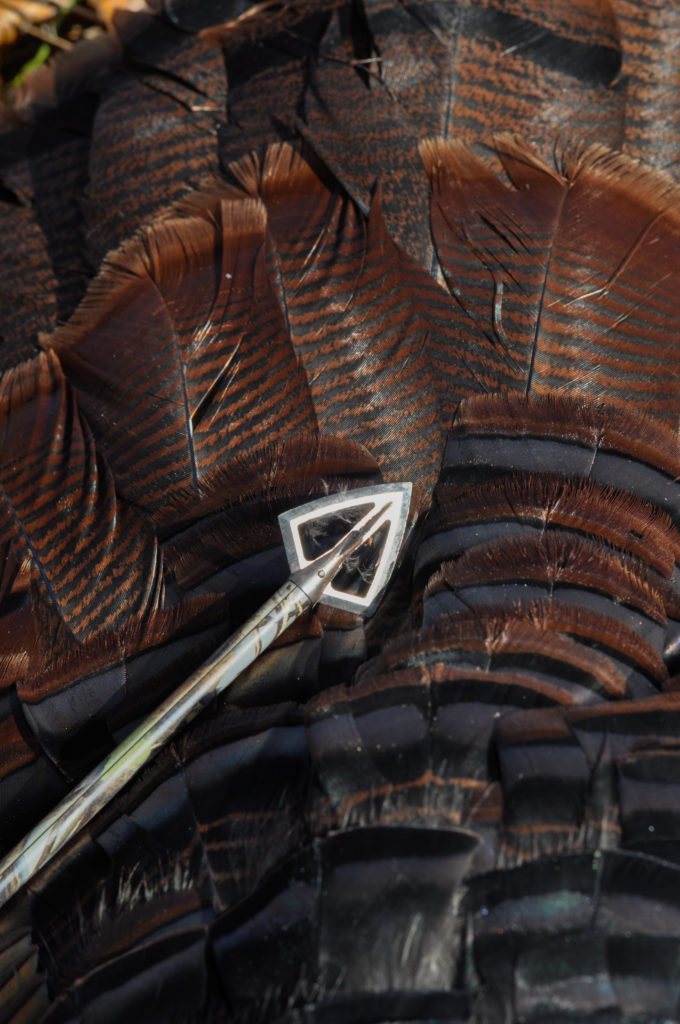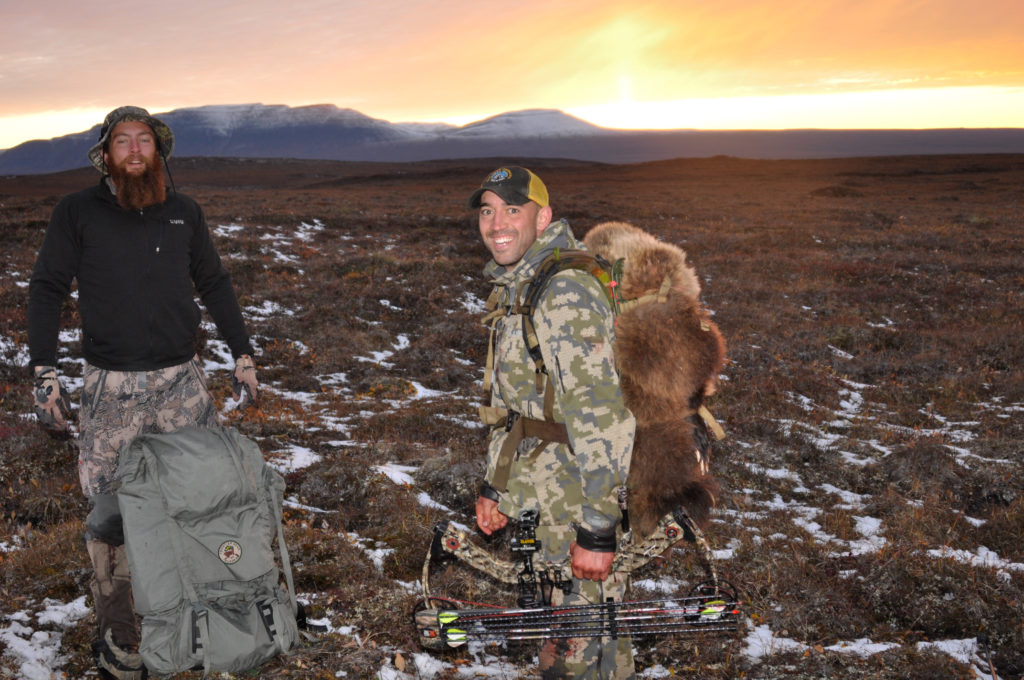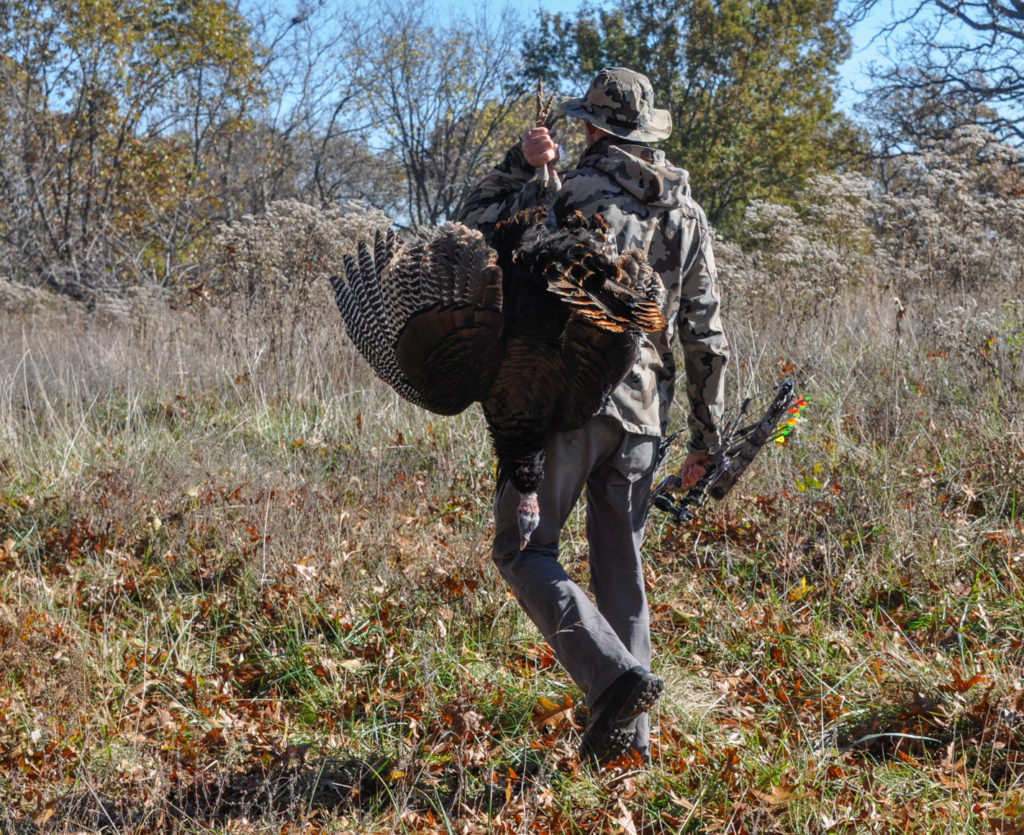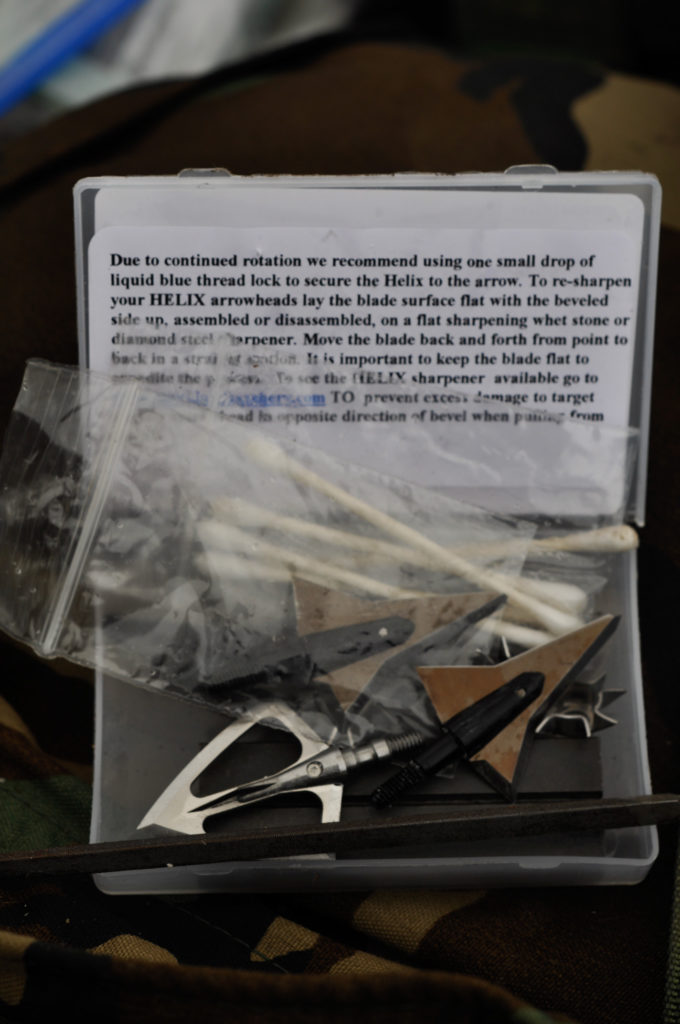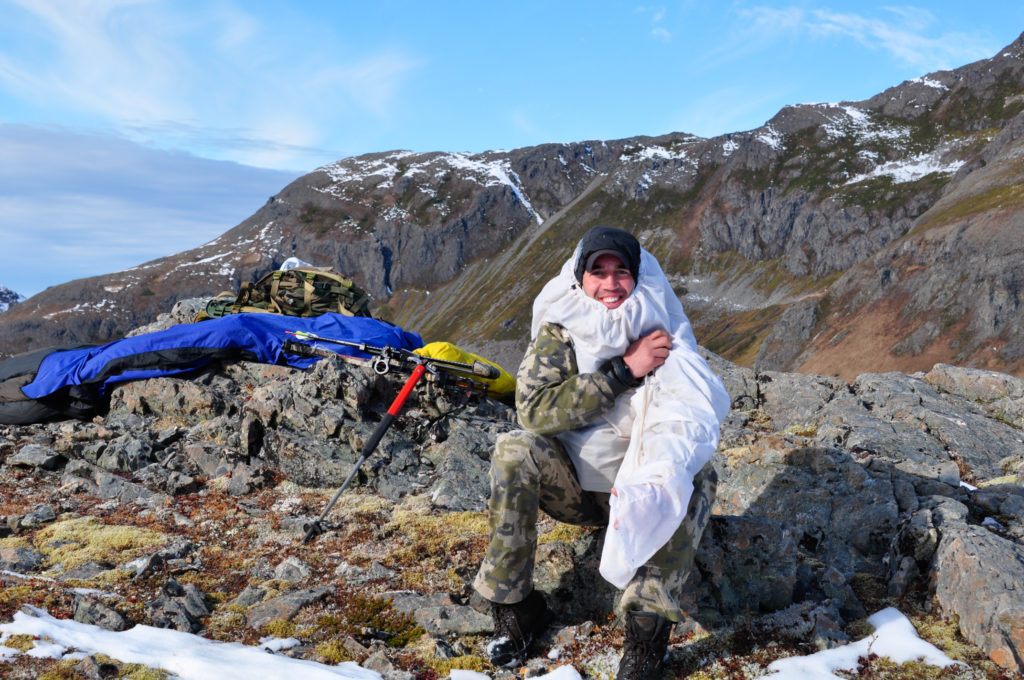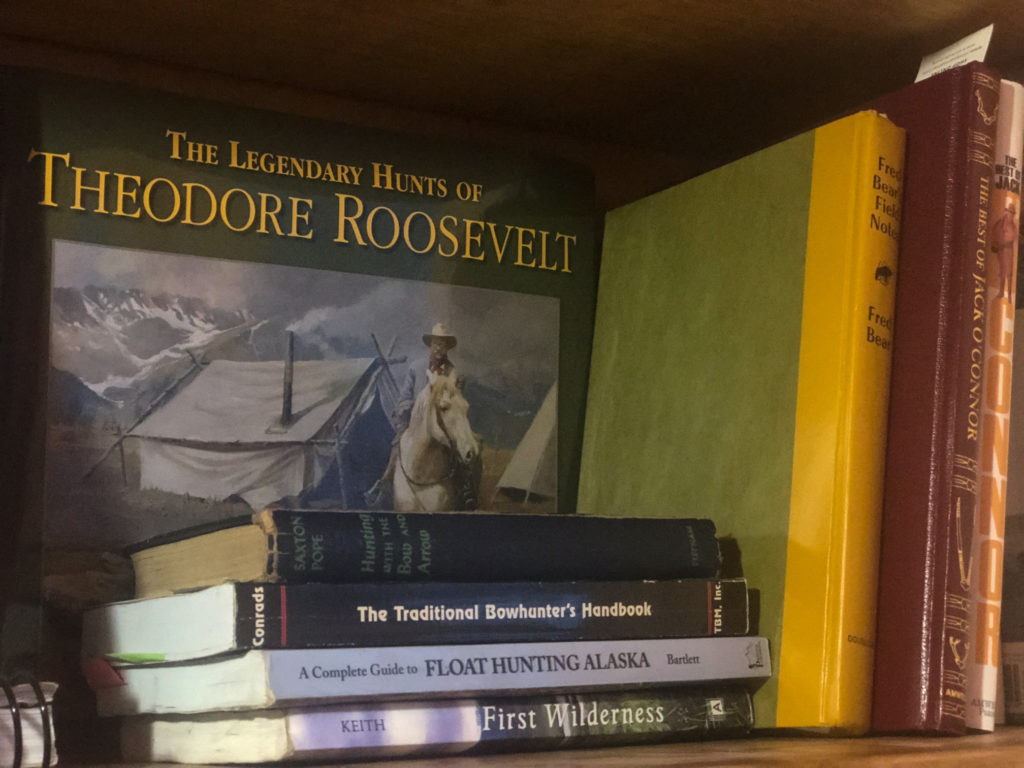“We who have hunted thus, trod the forest trails, climbed the lofty peaks, breathed the magic air, and viewed the endless roll of mountain ridges, blue in the distance, have been blessed by the gods” ~Saxton Pope.
Throughout my childhood years, I was frequently infatuated by various books involving wild outdoor adventure. I would read a classic such as Robin Hood or The Last of the Mohicans and then spend the ensuing days consumed by the adventures created within my imagination. It’s impossible to count how many pretend bad guys or animals I’ve arrowed in my life. Needless to say, my pretend jails and dinner plates were always full. I imagine that many readers of this publication have similar experiences.
Our childhood innocence inevitably gets consumed by adolescence – years commonly plagued by trifles of attempting to fit in with the crowd. Though I was a genuine nature boy, I was still a victim to peer pressure. My free time was often spent in the woods of Minnesota with a confused state of mind trying to figure out how I could be both fluent in trees and deer and still have friends. It was not until I was a confident young adult that I was again consumed by an inspiring book that steered me back onto a happy focused path. That book was One Man’s Wilderness, the story of Dick Proenneke and his adventure to leave civilization to live his life in the Alaskan wilds.
Proenneke went through great efforts to document his life of solitude, tinkering and subsistence living. His video footage was compiled into a popular PBS series labeled “Alone in the Wilderness.” It was this story that pulled me away from my Midwest comforts, into the wild mountains, and helped me thrive in my late twenties. Alaska is where this trail led and now, in my mid-thirties, it burdens me to think of a life somewhere else. Whenever I get confused by my path, I reach for this book and read a few of his journal entries. His wisdom helps to ground me and remind me that I can still lead an adventurous life while also planting roots.
With all the social media influence these days, many of those old adolescent emotions of envy and insecurity are resurfacing. This time I’ve been feeling them as an outdoorsman. More specifically, as a bowhunter. I started to conceive that everybody out there is more successful, more cool, more happy, more “whatever they are trying to portray” than I. While I yearn to be a dedicated bowhunter, I’ve found myself reaching for a rifle just to satiate my ego. To my great and timely fortune, new inspiration entered my life last winter. It arrived as perhaps the greatest and most spot-on Christmas gift I’ve ever received, given to me by my buddy Ian – my moose hunting partner and former roommate. Inside the package was a packraft that we had once went half-sies on, a fishing reel of mine that he had commandeered, and the book Hunting with Bow and Arrow by Saxton Pope.
I smiled at the first two items but glowed when I handled the book. Its antiqued dark blue hard cover was elegantly simple. It contained only a small image of a bowman and the words of the title and author – a man whose surname is attached to the record books of archery hunting. I thumbed the pages and thought their aged thick stock had a royal feel to them, like something that belongs in the Library of Congress. Beneath the front cover was a note – a classic inscription from Ian – and on the cover page beneath this were the signed names of the previous owners. It was love at first sight.
This book seemed to fit Ian’s persona perfectly and I couldn’t believe he had parted with it. But I felt that he had sacrificed something because he understood how much I would cherish it and this is the basis of a perfect gift. Ian knew about my growing library of books pertinent to my various interests. More so, he noticed that I had just begun a trend of lending great books to my acquaintances whenever opportunity arose. I had previously shared One Man’s Wilderness with him to his great delight and he was returning the favor with something equally meaningful.
There is so much to be learned from studying the words left behind by the pioneers of our hobbies. A hunter intent on mastering their craft is wise to bring along a classic book on each of their hunts. If we spend our good weather days learning about the animals while on their trail, we are then wise to have material along to help us continue this learning through the soggy tent days and dark evenings around the stove or fire. I continue to enhance my own library and encourage others to do the same. There are countless legendary tales, how-to’s and field notes from iconic outdoorsman that contain information every hunter can learn from. As you read them and come across something you admire, fold that page corner and keep the book in a place where you can revisit it throughout the year. Certainly, before you head into the field, peruse these relics and freshen up on those tricks and tips you wanted to retain.
One blizzardy day that winter, I whizzed through the pages of my gift and then stored it on the “classics” shelf of my library, waiting eagerly for a suitable hunt to bring it along and revisit it. This year’s moose hunt with Ian, a reunion trip to familiar waters, was the ideal occasion. The opportunity to exchange thoughts on Pope’s wisdom seemed the perfect way to honor the sacrifice Ian had made. As anticipated, we shared our infatuations with the information and stories each evening as we were damping the flue on the stove and climbing into our sleeping bags. Beneath the glow of my headlamp, I’d amuse myself with a chapter then fall asleep happy and eager for the next night so I could escape into another.
From this book’s first words, words that were originally written in 1923, Pope instilled a certain confidence that made me more comfortable in my skin and more certain that I’d soon be building my first bow and arrows.
Dedicated To Robin Hood: A spirit that at some time dwells in the heart of every youth.
As the book progressed, my confidence swelled and evolved into a desire to become not only a more dedicated archer but also to become a more fluent hunter and respected author. He hooked me by empathizing with my own childhood adventures; mesmerized me with his stories from befriending Ishi – the last known wild American Indian; enamored me with his detailing of the processes of building bows, arrows, and all the necessary accessories a bowhunter needs; then completely transfixed me with the stories of his own archery adventures.
“The air seemed strangely still; the silence was oppressive. Our nervous tension exploded in a wave of laughter and exclamations of wonderment. Frost declared he had never seen such a spectacle in all his life; four grizzly bears in deadly combat; the din of battle; the wild bellowing; and two bowmen shooting arrow after arrow into the jumble of struggling beasts”
Many corners were folded as I turned the pages. There were countless phrases that made me feel as though Pope had eclipsed nearly a century and was now living inside my head. His final chapter, “The Upshot” continues to resonate because of how congruent his thoughts towards hunting are with my own. This was comforting because, for the past few years, I’ve been growing my writing career amidst maturing frustrations over some of the directions the current hunting industry is taking – incessant trophy hunting, long range shooting, private land leasing, etc. Pope was witness to the beginning of these trends.
I often feel remorse for the fact the some of the glory days seem to be passed; days lived by men like Pope and his companion Art Young, as well as icons like Fred Bear and Teddy Roosevelt. These were days when you could comfortably knock on a stranger’s door and get permission to go hunting on their land; days where you could just take your weapon for a walk and come back proud of anything you were able to harvest; and days where hunting tools were simple and you could cheaply head into the field without an expensive image or ego to maintain.
As I continued to digest Pope’s words following the moose hunt, I became consumed by a need to share them with my peers. I was confident that there was something inside that book that nearly every outdoorsman would benefit from reading. I contemplated what angle I could take for an article but struggled to distill my thoughts into a concise message. His hunting stories are just too thrilling to abbreviate. His words of wisdom are too innumerable to consolidate. There was no respectable way to condense it all into a consumable article.
My mind pondered its way through numerous days in the deer woods and chewed through hours of writer’s block. I looked back upon any photo I have where there’s a bow in my hand. Also, I specifically admired each of the animals I have harvested with primitive weaponry. It wasn’t until whitetail deer season ended back in my old home in Minnesota and I returned to Alaska, to my new home, to my place in the world, that a thesis hit me: Inspiration. I just needed to inspire people to read the book themselves and let the legend and their own imaginations do the rest.
As this epiphany hit me, I began to see my current world with more clarity. It grounded me similar to the way Proenneke’s journals have always done. I looked around my home and noticed all the archery tackle that adorned my walls. I noticed how the photos that made me smirk the most were of animals that weren’t my main objective but instead the grouse, deer, turkeys, and small game that I had opportunistically arrowed. I was quick to appreciate the extra number of days I spend outside each year because I’m able to take advantage of early and late season archery hunts. I noticed archery targets scattered about my property and was grateful to have a hobby that allows me to practice – indoors or outdoors – no matter where I’m living without neighbors becoming concerned. Also, I assumed greater respect for the animals I failed to harvest when I was handicapped by my choice of weaponry. In admiring these specimens, present only in my memory, I realized the investment these hunts became. We learn exponentially more about animal behavior when we force ourselves to get close to them — These are my own words that I believe Pope would approve of. Feeling this rush of happiness, I knew I needed to devote myself to obtaining more of it.
Pope had inspired me to enter a new phase of growth in my life. I knew my own path was to adhere to his advice and start by making one arrow. Since I already own a full quiver of bows, a quiver of arrows is the best goal for me and I’m confident that I can complete one arrow this year. Following his instructions for their creation, Pope was confident that “a good arrow could be made in one hour.” His friend followed this advice and later challenged Pope’s words by writing that “it takes three hours to make a bad one!” Nonetheless, this friend went on to note that once he had made one arrow, it was simple for him to make the next one and soon he had a full quiver. Also, I’m taking my bow for more walks and planning more archery escapades to grow myself as a hunter.
“An archer must always, perforce, study animate nature and learn its ways before he can capture it. In our early training with Ishi, the Indian, he taught us to look before he taught us to shoot. “Little bit walk, too much look” was his motto. The roving eye and the light step are the signs of the forest voyageur…there is no better training than to stalk the wary ground squirrel or the alert cottontail. These every archer should school himself to hit before he ventures after larger beasts.”
With Hunting with Bow and Arrow, Pope perfected what we authors should aspire to do: educate, entertain and inspire. I knew I had to challenge myself to do the same so that more readers would explore his book and/or anything that inspires them to mature as free-spirited adventurers. I challenged myself to write with Pope’s sincere conviction. Success would mean that my wishes for a reader’s well-being shone through and lit their fire such that they raced to Amazon and downloaded the free Kindle version. Maybe they’d even try to find a hard copy to add to their own “Classics” shelf.
My goal is not for everyone to become a traditional archer or even an archer for that matter. These are my own thoughts but they are congruent with Pope’s.
“…Nor is it suited to all men. Few indeed seem fitted for archery or care for it. But that rare soul who finds in its appeal something that satisfies his desire for fair play, historic sentiment, and the call of the open world, will be happy…it carries with it dim memory pictures of spring days, the green woods, and the joy of youth.”
My goal is for each of you to have more fun in the field and I believe that taking a bow for a walk is a great way to do this. My goal is to help you feel secure spending a day inside, relaxed, with a good book and feel comfortable that this was time well-spent preparing for your next hunt. My goal is to inspire you to make one arrow; to stalk one rabbit; to let one person hunt on your land; to take one kid hunting; to take an old-timer back into the field and learn one trick from them; to spend one afternoon pretending to be Ishi; to share one social media photo where you are captured in the midst of using your imagination; or to just take a stick and string for a walk and have one day of pure fun shooting at stumps, flowers and bunnies.
“May the gods grant us all space to carry a sturdy bow and wander through the forest glades to seek the bounding deer; to lie in the deep meadow grasses; to watch the flight of birds; to smell the fragrance of burning leaves; to cast an upward glance at the unobstructed beauty of the moon. May they give us strength to draw the string to cheek, the arrow to the barb and loose the flying shaft, so long as life may last”
“Farewell and shoot well!” ~Saxton Pope
Happy Hunting
Steve Opat
“Few things could be better for the outdoor world than if more people picked up the stick and string and took it for a walk.”
This is my own quote and it’s one I’m confident makes Saxton Pope smile from the heavens.


